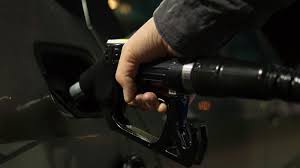In a bid to address the pressing issue of ‘watered-down’ diesel in South Africa, the South African Petroleum Retailers Association (SAPRA) has expressed its support for comprehensive measures to investigate and curtail the reported cases. The Department of Mineral Resources and Energy (DMRE) recently announced its focus on companies, particularly retailers, involved in selling “adulterated” diesel as a means to reduce costs and evade taxes.
The revelation by the DMRE, which found that 70 out of 1000 samples from service stations across the country contained ‘watered-down’ diesel – a blend of diesel and illuminating paraffin, has sparked concerns about the integrity of the fuel supply chain in South Africa.
Lebo Ramolahloane, Vice Chairman of SAPRA, emphasized the importance of compliance in preventing such practices. He commended the efforts of the DMRE in identifying non-compliant operators and highlighted the persistent challenge of fuel adulteration, prompting SAPRA and other key stakeholders to establish the Petroleum Compliance Forum in 2019.
“The intention was to bring back some level of reform to the petroleum malpractices underway, which inadvertently erode compliant business margins, taxes to the fiscus, and impacts the integrity of consumer vehicles to perform optimally on South African Roads,” stated Ramolahloane.
SAPRA has been proactive in combating illicit practices within the industry, having launched a whistleblower hotline in 2018. This hotline has proven successful in reporting illicit trade and transport, leading to fines, penalties, and suspensions for offenders. Ramolahloane acknowledged the challenges faced by regulatory bodies, noting the difficulty in monitoring the situation on the ground due to the sheer scale of the industry.
“From a retail perspective, it is also very difficult to monitor as the mixing happens at depot level before it reaches our retail filling stations,” he explained.
Despite these challenges, SAPRA ensures that its members adhere to a strict code of conduct. In case of suspicions or concerns, motorists are encouraged to visit the SAPRA website and report them on the whistleblower hotline.
“We will not hesitate to investigate and, if found guilty, take immediate action against that member in addition to any of the other punitive clauses imposed against them by statutory bodies,” affirmed Ramolahloane.
The consequences of fuel adulteration extend beyond financial losses for consumers. Ramolahloane highlighted the damage to unsuspecting consumers’ vehicles, leading to additional costs for repairs, and the significant economic impact of lost revenue running into billions.
SAPRA issued a caution to South African consumers, urging them to be “extremely wary” of purchasing cheap diesel in the country. The association emphasized the need for consumers to prioritize fuel quality over cost to protect their vehicles and contribute to the overall integrity of the nation’s fuel supply.
As the industry grapples with these challenges, SAPRA continues to collaborate with regulatory bodies, industry stakeholders, and the government to find long-term solutions that will ensure the integrity of the fuel supply chain in South Africa. The association remains committed to promoting compliance and safeguarding the interests of both consumers and legitimate businesses within the petroleum sector.

